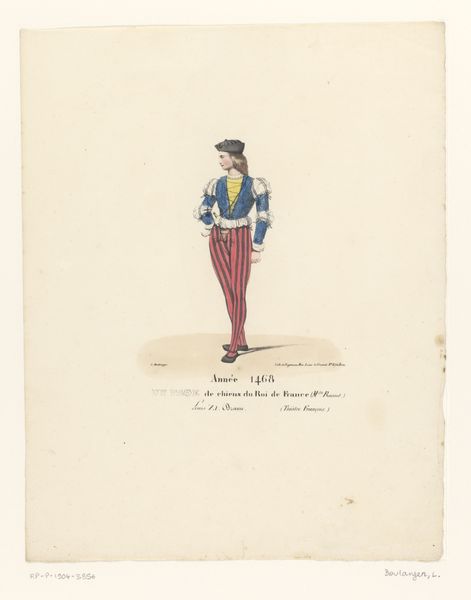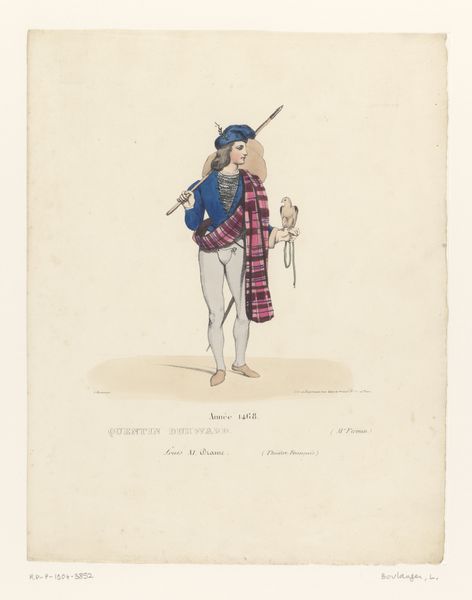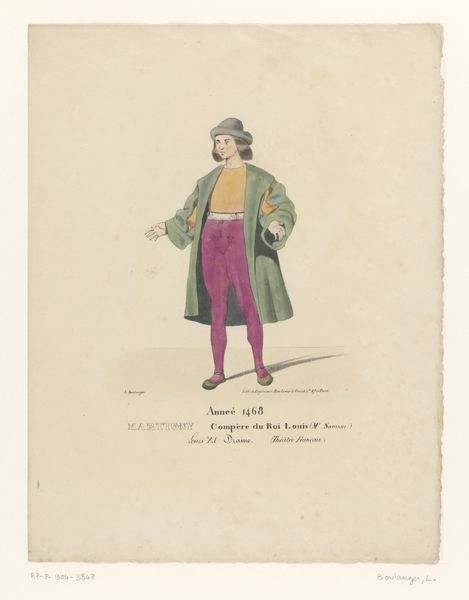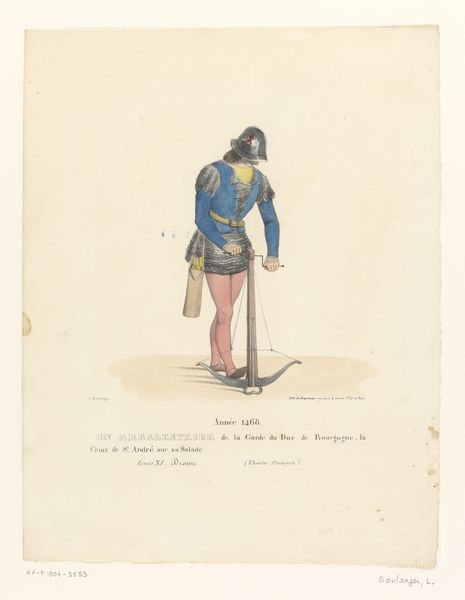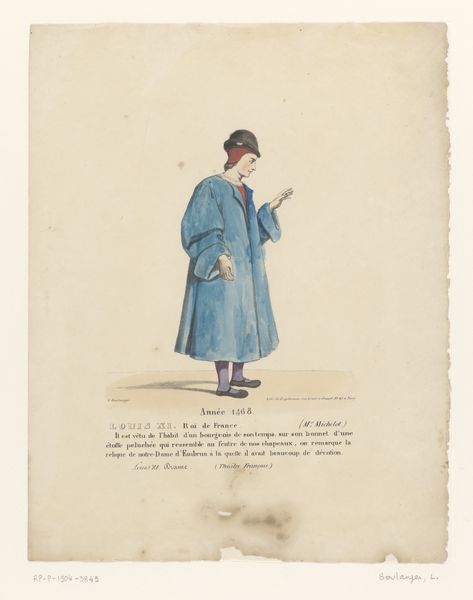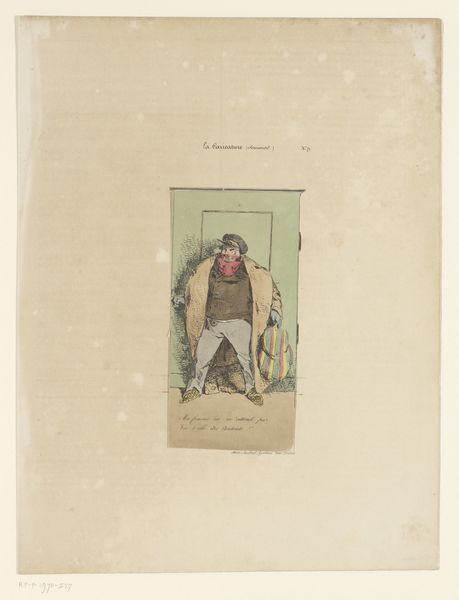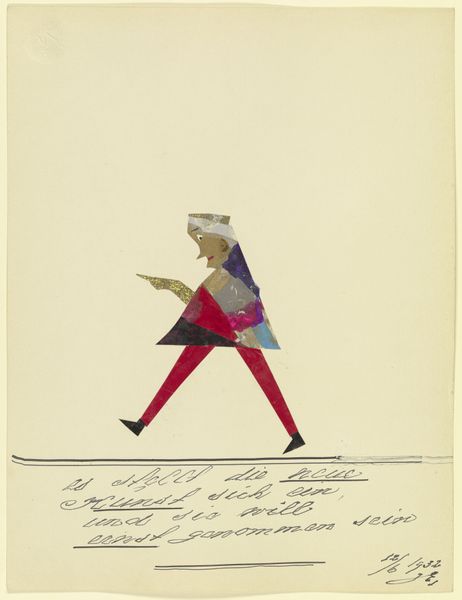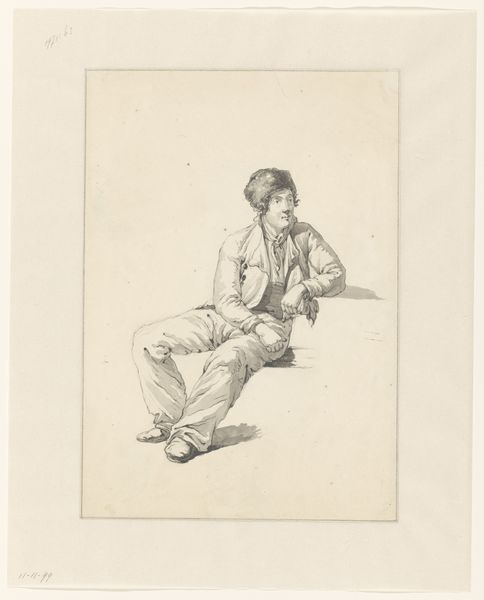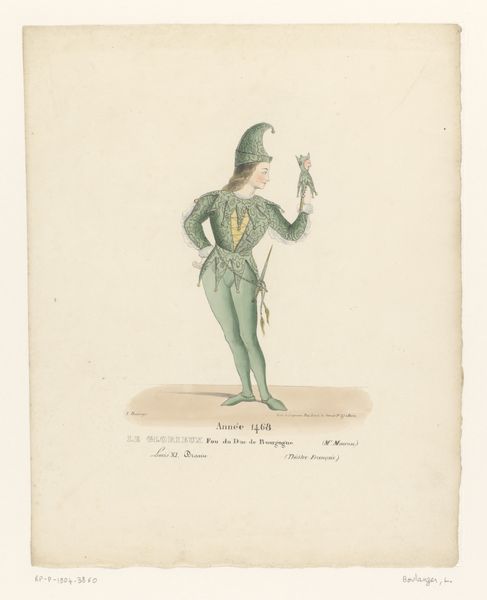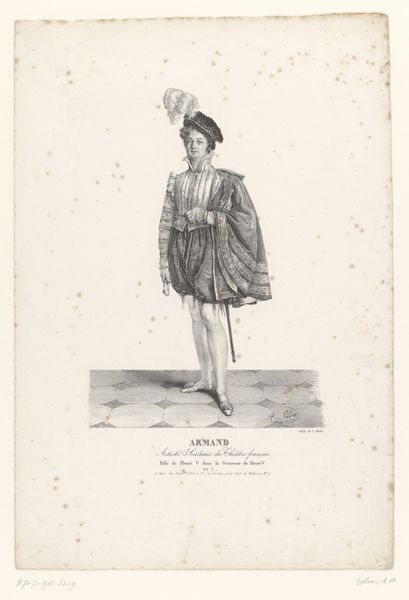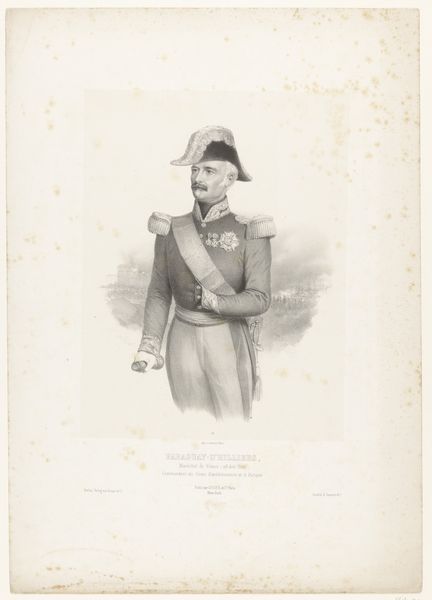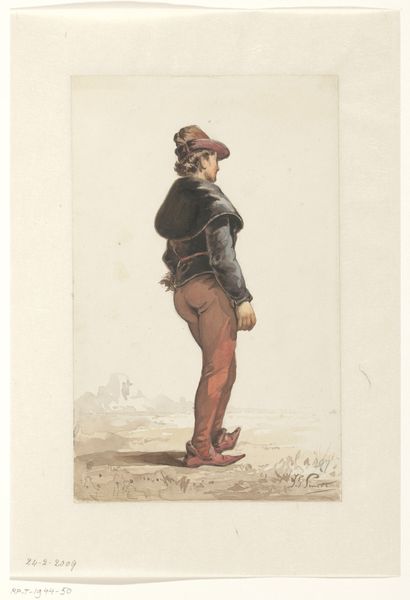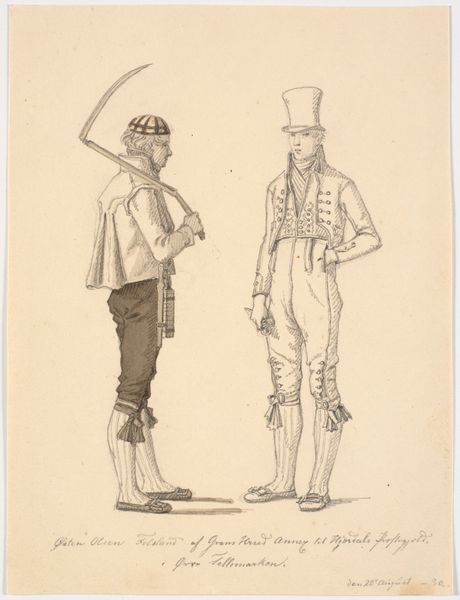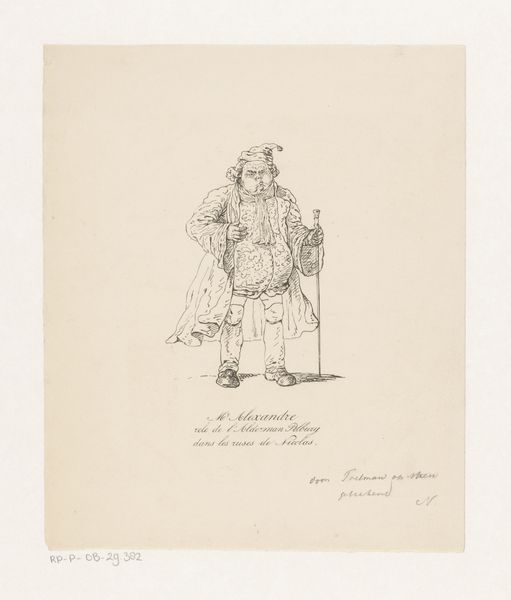
Kostuum van een page van de hertog van Bourgondië uit het drama Louis XI à Péronne 1826
0:00
0:00
louisboulanger
Rijksmuseum
drawing, paper, ink
#
portrait
#
drawing
#
figuration
#
paper
#
ink
#
romanticism
#
genre-painting
#
history-painting
#
academic-art
Dimensions: height 348 mm, width 267 mm
Copyright: Rijks Museum: Open Domain
Curator: The artwork before us, housed here at the Rijksmuseum, is entitled "Costume of a Page of the Duke of Burgundy from the drama Louis XI à Péronne," created in 1826 by Louis Boulanger. It’s rendered in ink on paper. Editor: Stripes! That’s the first thing that hits you. A symphony of vertical lines vying for your attention—those striking black and white striped leggings immediately drag your eye downward and back up, don’t they? It’s so arresting; what a bold fashion statement, or rather, costume. Curator: Indeed, Boulanger captures not just a likeness, but also a reflection of societal structure, class distinctions inherent in theatrical representation and historical costume. Editor: It does feel like he's trapped, somehow. Despite the bright top and hat, it is melancholy. Maybe it’s knowing he is playing a role? Even though it is of some duke from history? I am curious. Curator: It’s worth noting the context. This work emerges during a time of fervent Romanticism, with an Academic underpinning, evidenced in the detail of rendering costume, and interest in genre and history painting. The choice of representing a theatrical figure connects to the era's fascination with drama and the spectacle of courtly life, all reflected on the stage. The way costume operates symbolically in historical context. Editor: You know, thinking about it as a study for a larger work unlocks it more. As if he were about to enter a big oil painting and his vertical prison is temporary. Thanks for shining a light on Boulanger, fascinating glimpse. Curator: My pleasure, art always encourages conversations.
Comments
No comments
Be the first to comment and join the conversation on the ultimate creative platform.
